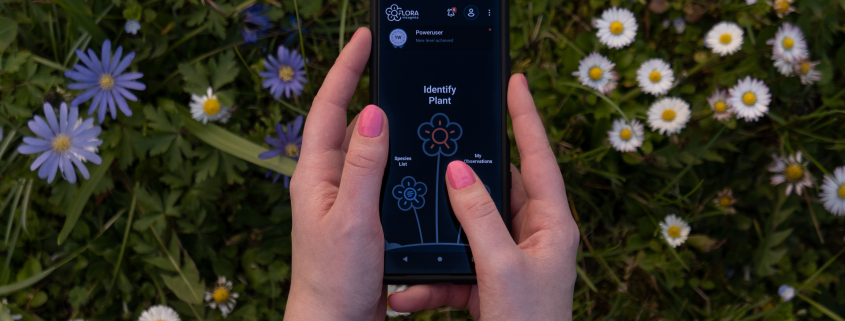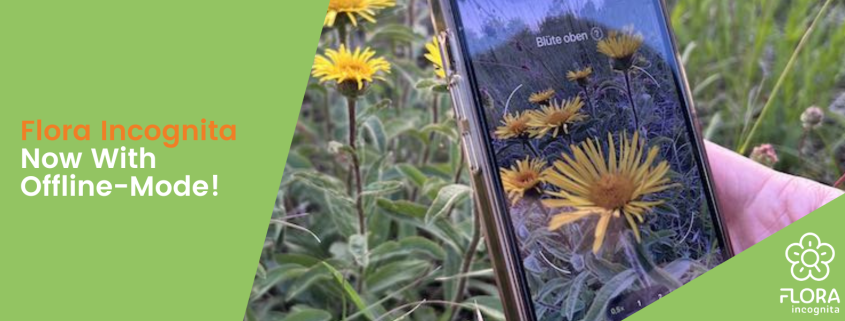Press Release: New AI for Flora Incognita
“Flora Incognita”, Germany’s most popular plant identification app, has been further enhanced by a new artificial intelligence (AI) – as a result, the number of identifiable plant species has tripled: around 16,000 species can be identified worldwide. The app, available in 20 languages, now also works offline. Its range of digital educational content has been significantly expanded to include a wide range of new plant information.
Scientists from the Technical University of Ilmenau and the Max Planck Institute for Biogeochemistry in Jena have improved Flora Incognita with a new technological basis of self-learning, deep neural networks. Prof. Patrick Mäder, head of the Department of Data Intensive Systems and Visualisation and project leader of Flora Incognita at the TU Ilmenau, and the research team from Jena have made great efforts to develop innovative machine-learning training methods for these networks in the last months: “We immediately applied the new methods to the Flora Incognita app and were thus able to process millions of images of plants worldwide in our data center at the TU Ilmenau. With the right images, the new networks are able to classify many plant species with an accuracy of almost 100 per cent”.
For the new app version, user-friendliness and accessibility have also been improved. Plant finds can now be captured offline in nature, i.e. without a network connection, and automatically identified later (with internet access). Germany’s most popular plant identification app is also used by teachers at schools and universities to support education. Since school devices rarely have mobile internet, in particular this target group benefits from the new offline mode.
In addition, a new gamification element has been introduced: Users can collect badges for documenting certain plant groups. With this, they not only enjoy collecting plants themselves over a longer period of time,but they also strengthen the awareness of biodiversity in their social environment. At the same time, the app creates an incentive to document already known species or other plant groups, which provides scientists with important data for their research projects.
Another new feature is the possibility to use Flora Incognita for citizen science projects. Lay people involved in the project can identify plants as usual, for example, invasive species of a region, special trees, or the plant diversity of a school campus. Those responsible for the citizen science project then receive the anonymized observation data for scientific and nature conservation evaluation.
But not only the technology of the Flora-Incognita app has improved. The data basis and the underlying information have also been expanded. Citizen scientists, i.e. interested laypeople, have contributed to this. With the “Flora Capture” app, which was specially developed for the scientific documentation of plants, thousands of images from defined perspectives have already been transmitted, which have contributed to a significant improvement in the identification accuracy of the German flora, especially for critical plant groups such as grasses. Students of the University of Applied Sciences Erfurt participated in the recording of thousands of trees, so that now identification is also possible in winter on the basis of bud images. The authors of the book “African Plants – A Photo Guide” and members of the Geisenheim University of Applied Sciences and the Dresden University of Applied Sciences provided further important data for the expansion of the identifiable species.
Co-project leader Dr. Jana Wäldchen from the Max Planck Institute for Biogeochemistry Jena announces that the additional information offered in the app will be further expanded in the coming months: “We plan to supplement the plant fact sheets with additional exciting details. For example, we are thinking of information on how pollinator-friendly a species is or whether it is invasive. In this way, we would like to provide our users with interesting plant knowledge after the identification.


